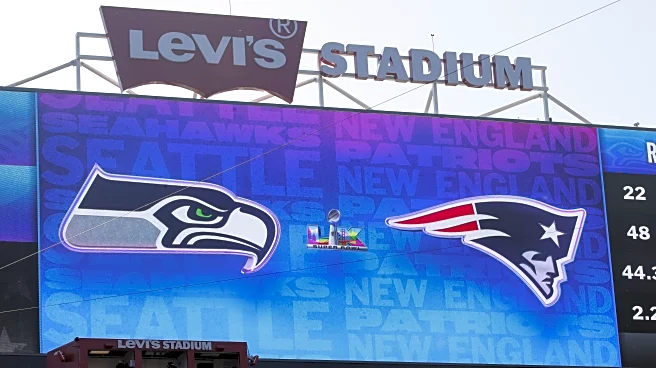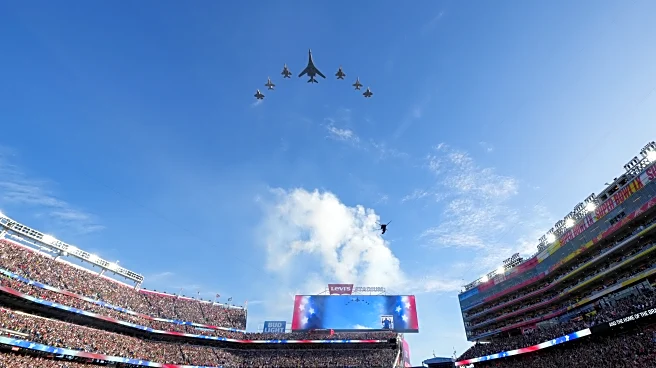Rapid Read • 9 min read
On the 80th anniversary of the atomic bombing of Nagasaki, survivors and officials gathered to commemorate the event and advocate for nuclear disarmament. The ceremony, held at Nagasaki Peace Park, was attended by approximately 2,600 people from over 90 countries. The United States dropped the atomic bomb on Nagasaki on August 9, 1945, resulting in 70,000 deaths by the end of that year. This attack followed the bombing of Hiroshima three days earlier, which killed 140,000 people. The event included speeches from survivors and officials, including Nagasaki Mayor Shiro Suzuki and Prime Minister Shigeru Ishiba, who emphasized the importance of passing down the memories of the bombing to future generations. Survivors expressed their hopes for a world without nuclear weapons, urging younger generations to continue the fight for disarmament.
AD
The commemoration of the Nagasaki bombing highlights ongoing global concerns about nuclear weapons and the need for disarmament. Survivors' testimonies serve as a powerful reminder of the devastating impact of nuclear warfare, reinforcing calls for a nuclear-free world. The event underscores the tension between nations advocating for disarmament and those maintaining nuclear arsenals for deterrence. Japan's position, as a nation that experienced nuclear attacks, is particularly significant in the global dialogue on nuclear weapons. The ceremony also reflects broader geopolitical dynamics, as evidenced by the absence of certain international representatives, such as China, and the controversy surrounding last year's event. The push for disarmament is crucial in the context of rising nuclear threats and the need for international cooperation to prevent future nuclear conflicts.
Looking forward, the focus will be on international efforts to strengthen the global disarmament regime. Japan plans to promote dialogue between nuclear and non-nuclear states at the upcoming Non-Proliferation of Nuclear Weapons review conference in 2026. The involvement of younger generations in the disarmament movement is seen as vital for sustaining momentum towards a nuclear-free world. Survivors and their supporters are actively working to document and share their experiences through digital platforms, aiming to educate and inspire future advocates. The ongoing geopolitical landscape, including Japan's security policies and international relations, will continue to influence the discourse on nuclear weapons and disarmament.
The anniversary event in Nagasaki also highlights ethical and cultural dimensions of nuclear disarmament. The survivors' stories emphasize the human cost of nuclear warfare, challenging the moral justification for maintaining nuclear arsenals. The cultural heritage of Nagasaki, as a city that endured such devastation, plays a crucial role in shaping global perceptions of nuclear weapons. The event serves as a reminder of the importance of preserving historical memory to prevent the repetition of past atrocities. Additionally, the involvement of younger generations in the disarmament movement reflects a cultural shift towards greater awareness and activism on global security issues.
AD
More Stories You Might Enjoy













